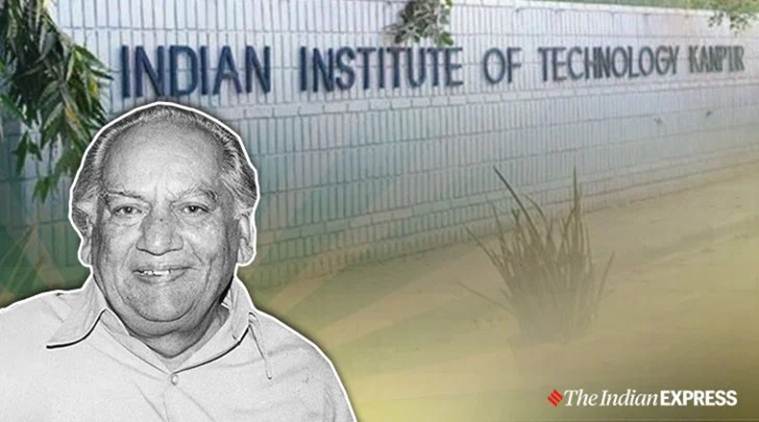 The committee was set up by the institute to look into a complaint against a students’ demonstration on December 17, where Faiz’s poem, ‘Hum Dekhenge’, was read to express solidarity with students of Jamia Millia Islamia.
The committee was set up by the institute to look into a complaint against a students’ demonstration on December 17, where Faiz’s poem, ‘Hum Dekhenge’, was read to express solidarity with students of Jamia Millia Islamia.
The recitation of Faiz Ahmad Faiz’s poem by students protesting against the Citizenship (Amendment) Act (CAA) on campus last year was “unsuitable to the time and place”, a committee set up by the Indian Institute of Technology (IIT) in Kanpur has concluded.
It has also found the role of five teachers and six students, who participated in the protest, “to be less than desirable” and recommended that the institute should “counsel” them.
The six-member committee was set up by the institute to look into a complaint against a students’ demonstration on December 17, where Faiz’s poem, ‘Hum Dekhenge’, was read to express solidarity with students of Jamia Millia Islamia, who were beaten up by Delhi Police during a protest against the amended citizenship law.
The complaint by Vashi Mant Sharma, a temporary teacher at IIT-Kanpur, claimed the poem hurts his religious sentiments. The complaint was provoked by the reading of two lines from the poem: “Jab arz-e-Khuda ke Ka’abe se, sab buutt uthwaae jaayenge/ Hum ahl-e-safa mardood-e-haram, masnad pe bithaaye jaayenge/ Sab taaj uchhale jaayenge, sab takht giraaye jaayenge”, roughly translated as, “From the abode of God, when the icons of falsehood will be removed/ When we, the faithful, who have been barred from sacred places, will be seated on a high pedestal/ When crowns will be tossed, when thrones will be brought down”.
Speaking to The Indian Express earlier, Sharma had said, “How can they sing a poem that says idols will be brought down? It refers to the invasion of India by Mughals and hurts my religious feelings.”
The committee was tasked to investigate if “inflammatory, abusive and intimidating language” was used during the gathering and in social media posts.
Speaking to The Indian Express, Manindra Agarwal, committee chairperson and deputy director, confirmed that the report was submitted last week. On the recitation of Faiz’s poem, he said, “The committee observed that perhaps, at that time and place, it was not the most suitable thing to say. The person who recited that (poem) agreed with this perspective and wrote a note saying that he regrets (it) in case anybody’s feelings were hurt. So that matter was closed.”
When asked why the panel felt it was unsuitable, he said, “This was a volatile environment. People with different thought processes and different perspectives were there, (and were) agitated. One should not do things that could agitate people even further. In a normal, day-to-day situation, I can do many things, which, in a volatile situation, I should not.”
Agarwal clarified that the committee did not go into “the interpretation of the poem”.
The committee has faulted five teachers and six students specifically for their “less than desirable behaviour”, which includes their decision to go ahead with the protest march on December 17, even after IIT-Kanpur withdrew permission.
“The institute had informed the people (responsible for organising the march) around 11 am or 12 noon that day that permission had been withdrawn by the institute and also that Section 144 had been imposed by the city administration. Yet this information was not communicated to the students at large, who continued to believe that the march was going to take place at 2 pm,” said Agarwal.
“Several faculty members, despite knowing that permission had been withdrawn and Section 144 was imposed, still went ahead and participated in the march. Several people created distasteful videos and even put up misleading portrayal of facts on social media. This was not corrected even after the institute’s advising them to do so. These were (some of the) actions that were out of line and were identified by the committee,” he said.